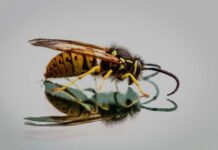By the time we hit 2050, 1 in 4 people are going to be over the age of 65. So it is surprising that we do not know very much about geriatric health and why some people age in a healthy way and other people do not.
To solve this mystery, Parminder Raina, Professor in the Department of Clinical Epidemiology & Biostatistics at McMaster University, is examining everything from the biology of aging to the social aspects of aging. By approaching aging as a multifaceted process and looking at how a person’s genetics interact with environmental factors such as air pollution, Prof. Raina is hoping to be able to determine whether that person is susceptible to developing certain diseases as they age.
Raina is also the lead investigator in the Canadian Longitudinal Study on Aging, one of the largest studies in Canada where 50,000 Canadians between the ages of 45 and 85 are being followed for the next 20 years.
By gathering information on the participants’ economics, psychological health, physical health, social well-being, and biological environment they are hoping to better understand the aging process and the factors that shape the way we age.




































